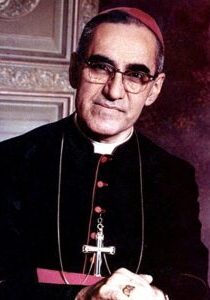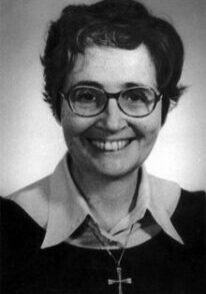Anselm of Canterbury
April 21, 1033 - April 21, 1109
Benedictine Monk and Founder of Scholasticism
Benedictine Monk and Founder of Scholasticism
From Aosta, Kingdom of Burgundy
Served in Canterbury, England
Affiliation: Catholic
"O Lord: my heart is made bitter by its own desolation; sweeten it by Your consolation. I beseech You, 0 Lord, that having begun in hunger to seek You, I may not finish without partaking of You. I set out famished; let me not return still unfed."
Anselm was born in Aosta in the Piedmont region of northwestern Italy in 1033. The town was strategically located at the intersection of the Great St. Bernard Pass and the Little St. Bernard Pass. The former road dates back to the Bronze Age and connects Italy with Switzerland. The latter straddles the Italian and French borders and connects the Aosta Valley with Savoie, France. Anselm was born to Ermenberga, a woman of noble Burgundian lineage, and to a father, Gondolfo, who was a Lombard nobleman. His mother played a key role in his early pietistic training. His father envisioned Anselm entering the political arena and did not approve of his choice to become a servant of God in the Church.
It is logical to surmise Anselm would have become a statesman of high acclaim had he chosen his father’s path. Instead, he became an articulator of great theological and philosophical depths. He pioneered a new educational method, Scholasticism, which combined Aristotle’s metaphysics with theology. Anselm also put forth the ontological argument for the existence of God based on the fact that such a being could be conceived of in the first place. Another major contribution was the satisfaction theory of atonement. The theory was based on the feudal tradition that the one making amends must do so according to the status of the one offended. Seeing God is an infinite being, the debt owed by man to Him must equal His status. Christ is the only being of equal status to God. Therefore, he is the only person who can satisfy man’s debt to God.
Anselm’s classical education, which emphasized linguistic precision, equipped him to make such arguments with great clarity. At a point before his 15th birthday, he asked to be admitted to a monastery for theological education. The abbot, the head of the monastery, knew of his father’s wishes about Anselm’s future and refused Anselm admission. Undeterred, he prayed he would become ill so the abbot would take pity on his condition and receive him in. The illness came, but the abbot still did not admit him.
Finally, in 1060, Anselm was able to live at a monastery and receive the training he so thoroughly desired. He chose the Benedictine monastery at Bec in Normandy. (In 1066, England came under the leadership of William the Conqueror, Duke of Normandy, when he defeats Harold II at the Battle of Hastings. Thus, England and Normandy were under the leadership of one ruler.) He was drawn to this monastery because of its abbot, Lanfranc. As in his youth, he excelled in his studies under the guidance of Lanfranc in so much that he began carrying some of the teaching responsibilities. Three years later, when Lanfranc left to become the abbot of Caen, Anselm was elected prior of the Bec monastery. Other monks at the monastery were less supportive because they thought him lacking years of experience compared to theirs. In time, their respect for and obedience to him increased more and more as he persuaded them with his gentle leadership.
In 1078, Herluin, a former Norman knight who had founded Bec, died and Anselm was elected the abbot. Initially, he balked at the honor and fell down before the other monks and tearfully begged that they not burden him with such a responsibility. Simultaneously, they prostrated themselves before Anselm and beseeched him to accept the abbacy. As the leader of the monastery, he also managed the business of the abbey, which included property and possessions in England.
Bec grew into an intellectual powerhouse under the guiding hand of Anselm. As its reputation widened, so did his as he came to counsel rulers and nobles across the continent and beyond its borders. His writings also increased in number as he wrote extensively about theology and philosophy. During this period of his life, the abbot wrote some of his most well-known works: Monologion, Proslogion, and his four philosophical dialogues, De grammatico, De veritate, De libertate arbitrii, and De casu diaboli.
In Monologion, Anselm sets about to prove the existence of God and his attributes by using reason alone instead of an appeal to the Bible or church dogma. Proslogion contains his well-known ontological argument for the existence of God. The core of his argument is “God is that than which nothing greater can be thought.” In his four philosophical dialogues, he explores truth defined as something existing in accordance with its design (De veritate). He also details freedom of choice connected to doing the right action for the right reasons (De libertate arbitrii). In De grammatico, he “focuses on untangling some puzzles about language, qualities, and substances.” De casu diaboli looks at evil, negation, and the complexities of the will by looking at the devil’s first sin.
A peculiar story involves Proslogion. Gaunilo of Marmoutier, a monk as well, challenged the validity of Anselm’s argument. He wrote the invention of anything perfect, the idea, could account for the creation of a reality defined by the idea. His illustration was a perfect island. If one could imagine the existence of an island that is perfect in climate, livability, food, resources, etc., then this type of island must exist somewhere in the world. Gaunilo’s argument perplexed Anselm, even troubled him with anxiety. Over a period of days, he was unable to conjure a retort. Eventually, a clear defense came to him. He wrote his argument pertains only to the existence of a perfect being, not to a perfect place or object. Seeing the island cannot replicate itself, it is not perfect. Seeing it cannot sustain itself, it is not perfect. Anselm argued his ontological argument for the existence of God pertains only to God in light of the traits that must exist in perfection in one being. This argument influenced great thinkers in subsequent generations: Descartes, de Spinoza, and Hegel.
In similar response to being appointed Abbot of Bec, Anselm was reluctant to appear to be seeking the office of archbishop of Canterbury. Hence, he shied away from visiting England. In 1092, he finally relented to the invitation of Hugh, Earl of Chester. Upon arriving in Canterbury the night before the Nativity of the Blessed Virgin, the people welcomed him with much adulation and considered him their next archbishop. He would have none of it and removed himself from the celebration.
The following year in the month of March, Anselm was visiting English lands owned by the abbey in Bec. He was also founding an abbey in Chester. While in Chester, King William II Rufus, son of William the Conqueror, named him Archbishop of Canterbury, the chief ruling officer of the Church of England. Anselm remained reluctant to accept the nomination and had to be forced to the ill king’s bedside where a pastoral staff was forced into his closed hand. The king had kept the office vacant since Lanfranc’s death in 1089 so he could pillage the church’s coffers and its lands.
In those leaderless years, the Church had hobbled along in an anarchic state. Upon entering the archbishopric, Anselm was introduced to the struggle that existed between the state and the church. William Rufus was holding lands which belonged to Canterbury. Anselm demanded their return before he would be consecrated archbishop. He also demanded Rufus acknowledge Urban II as the rightful pope instead of the antipope Clement III. The king relented and on December 4, 1093 Anselm was consecrated at 60 years of age.
Relations between the two men remained contentious. After he recovered from illness, William Rufus insisted Anselm pay him a sum of money. (Throughout his reign, William Rufus often treated the Church as his own personal bank unlike his father. By leaving various chief offices open, he collected the money that would have paid for the salaries of those in the unfilledpositions.) Anselm refused to pay lest it appear to be simony, a payment for an ecclesial position. Furthermore, the king did not permit Anselm to go to Rome to receive the pallium, a woolen vestment worn around the shoulders of an archbishop. It symbolized the pontiff’s approval of the appointment. Rufus believed Anselm’s reception of the pallium would imply the recognition of Urban II as pope.
This instance was part of a power struggle between kings and popes called the Investiture Controversy. The contested issue was who had the authority to invest/appoint church officials by way of conferring symbols of the office. Is it the king or the pope? On March 11, 1095, English bishops allied with William Rufus against Archbishop Anselm on the matter. The pallium was delivered from Rome and the king was set to bestow it to Anselm. He refused, however, on account it would seem his ecclesial authority was granted by the crown instead of the Church. The relationship between England’s head of state and head of the church continued to fracture and Anselm fled to Rome in 1097. Rufus seized the land holdings of Canterbury and pilfered the church treasury until his death.
During his exile, at the Council of Bari, Anselm defended the Filioque clause in the Nicene Creed, which stated the Holy Spirit “proceeds from the Father and the Son.” The Eastern churches disagreed with the Roman Church of the West regarding the addition of the clause. Anselm was instrumental in defending its inclusion.
In 1100, William Rufus was killed during a hunting excursion in the New Forest. His younger brother, Henry I, succeeded him as king of England. Despite the occupant of the throne changing, Henry I did not veer from his brother’s approach to the Church. He did invite Anselm to return to Canterbury, but he continued royal supervision of the Church, i.e. he wanted to appoint bishops and invest them. Once again, the archbishop fled the country and lived in exile from 1103 to 1107. The two parties brokered a compromise that gave investing authority back to the archbishop and the king would receive homage from the abbots and the bishops for their lands. The compromise gave Anselm two years of peace serving the churches in England and Normandy.
As evidenced by his argument for the existence of God in Proslogion, Anselm was known as an original and independent thinker. Cur Deus Homo (Why God Became Man) exemplifies his genius as he details the beauty of the need for the Son to be incarnated and the necessary atonement by the Son for man’s sin. He relies heavily on rationality to make his argument. He was also known for his lovingkindness to the impoverished and abused. And he secured the passage of a resolution by the national council at Westminster to abolish the sale of other humans.
Near the end of his days, Anselm became quite ill. For six months, he had to be carried to mass every day. He had to force himself to eat for requisite strength. His voice failed completely the Tuesday before Palm Sunday in April of 1109. One of his last actions was to raise his right hand and make the sign of the cross in order to bless the congregation. He died the next day, April 21.
***
Humility is only found in the greatest of leaders. One must be able to recognize the limitations of one’s traits and resources in order to surround himself with those that complement him. Witharrogant ambition, many men would have rushed to be an abbot or an archbishop. One could surmise Anselm understood the responsibility of each position of leadership he was placed in. He was humble and saw his own sin, his own inadequacies. He desired to remain “last,” but God put him “first.”
St. Anselm of Canterbury lived to his mid-70s.
SOURCES: Britannica, Stanford University, Franciscan Media, and New Advent.




